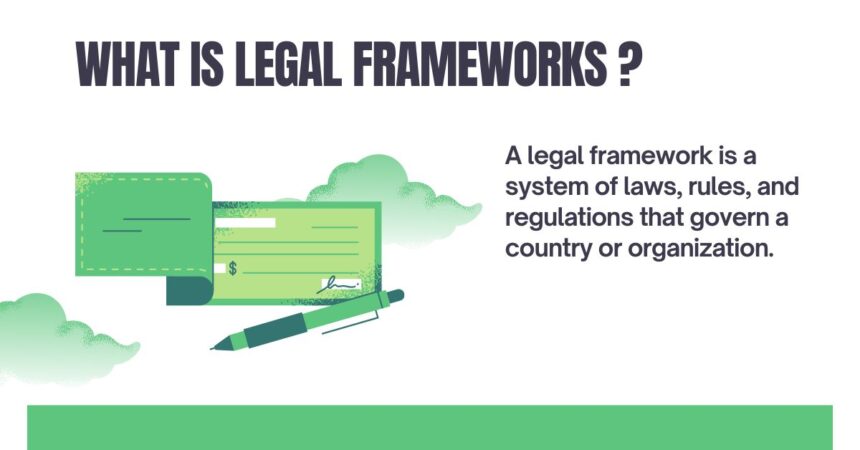Legal frameworks are the structured set of rules, regulations, and guidelines that govern business operations. They provide the foundation for compliance, ensuring businesses operate ethically and lawfully. From intellectual property protection to employment laws, understanding and adhering to these frameworks is essential for any organization to avoid legal disputes and foster trust.
Key Takeaways
- Legal frameworks ensure businesses comply with laws and regulations.
- They cover contracts, intellectual property, taxation, and labor laws.
- A solid legal structure protects against potential liabilities and disputes.
- Regular legal audits help businesses stay updated with changing laws.
Core Aspects of Legal Frameworks
- Contracts and Agreements: Enforceable agreements like partnerships, client contracts, and supplier agreements form the basis of business relationships.
- Intellectual Property (IP): Protects creations like trademarks, copyrights, and patents, ensuring businesses safeguard their assets.
- Employment Laws: Regulations around hiring, employee rights, and workplace safety.
- Taxation and Compliance: Laws governing income tax, GST, and other regulatory filings.
- Corporate Governance: Rules ensuring ethical decision-making and accountability in organizations.
For example, Apple Inc. rigorously protects its intellectual property, including patents and trademarks, to maintain its competitive edge and avoid counterfeit products.
Benefits of a Robust Legal Framework
- Risk Mitigation: Reduces the likelihood of legal disputes.
- Operational Clarity: Establishes clear guidelines for processes and decision-making.
- Reputation Management: Enhances credibility by ensuring compliance with laws.
- Investor Confidence: Attracts investors by showcasing a well-structured legal setup.
Challenges in Navigating Legal Frameworks
- Complex Regulations: Keeping up with ever-evolving laws can be daunting.
- High Legal Costs: Hiring experts and ensuring compliance can be expensive.
- Cross-Border Challenges: Expanding globally introduces additional legal complexities.
How to Build a Strong Legal Framework
- Hire Legal Experts: Consult attorneys or legal advisors for specialized guidance.
- Draft Clear Policies: Develop transparent policies for operations, hiring, and contracts.
- Stay Updated: Regularly review laws and adapt your framework as needed.
- Leverage Technology: Use legal tech tools for document management and compliance monitoring.
Example of Legal Framework in Action
Uber Technologies faced significant legal challenges globally regarding driver classification as independent contractors. By adapting to local labor laws and implementing compliance measures, Uber ensured smoother operations in different markets.





